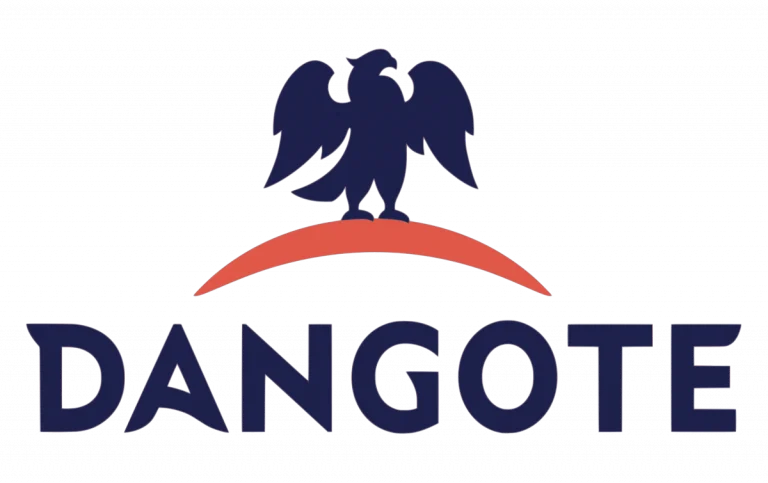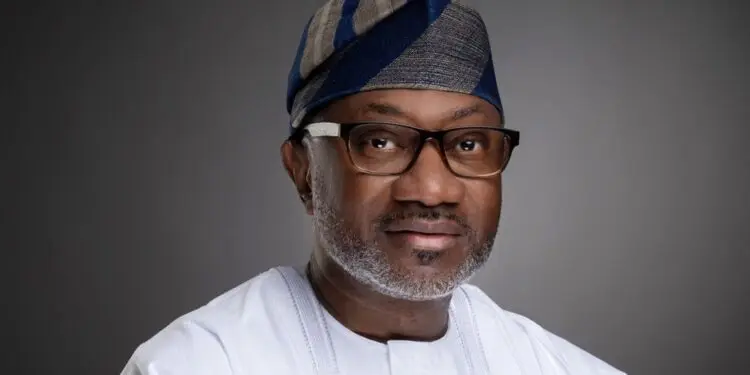Business
Foreign Portfolio Investments Drop 49% In 2 Months Of 2023

There are indications that foreign investors are not yet comfortable with Nigeria’s external sector position as well as the political environment as Foreign Portfolio Investments, FPIs, declined by a significant 48.7 percent in the first two months of this year when compared to the corresponding period of 2022.
The foreign investors had renewed their divestment measures some months before the general elections, a development which signaled lack of confidence.
Vanguard findings from the latest data released by the Nigerian Exchange Limited, NGX, revealed that the value of FP1s for the two months of the year stood at N44.52 billion as against N86.74 billion in the corresponding period of 2022.
In January 2023, the FPIs declined by 39.7 % to N24.9 billion as against N41.31 billion in the corresponding period of 2022. In February 2023 it dropped by a whopping 56.8 % to N19.62 billion as against N45.43 billion in the corresponding period of 2022.
READ ALSO: Naira Depreciates Against Dollar At Investors’ Window
Economy experts and analysts have attributed the decline on FPIs to foreign exchange volatility, inconsistent government policies, and market regulations among others.
In the absence of the foreign investors, the domestic counterparts have filled the gap and in February 2022 they accounted for 88.41 percent of the total value of transactions recorded in the bourse.
The total value of transactions recorded by the Exchange for the two months period stood at N384.01 billion.
Analysis from the latest figure released by the Exchange showed that foreign investors accounted for only 11.59 percent of the total value of transactions.
A review of the transactions showed that in January 2023 domestic investors outperformed the foreign investors accounting for 87.24 percent or N170.20 billion of the total transaction valued at N195.10 billion.
READ ALSO: Stock Investors Record N13bn Loss In Seven Days Over Interest Rates Hike
In the month of February 2023 the domestic investors also outperformed foreign investors accounting for 89.61 percent of the total value of transactions worth N188.91 billion.
Findings revealed that institutional investors dominated the domestic investments in the two months period representing 79.2 percent of the domestic investments worth N339.49 billion.
Experts’ comment
Many financial analysts believe FPIs commitment in Nigeria is on downward trend because of the exchange rate volatility and the political situation in the country.
Commenting, analyst and Executive Vice Chairman, David Adonri, said: “There is a foreign exchange rate risk attendant to foreign portfolio investment. Persistent depreciation of the Naira in recent past is capable of heightening exchange rate risk leading to loss on investments.
“Secondly, foreign portfolio investors’ confidence was eroded by their inability to remit proceeds of their investments.
READ ALSO: CCB Opens Investigation into Atiku’s SPV Saga, Invites Keyamo
“Finally, FPIs are sensitive to socio-political events. Few of the investors who have taken the risk arising for the political tension are investing in Fixed Income, FI.
“The political tension in Nigeria even with the conclusion of the general election is still not over and it continued to threaten the safety of their investments, hence their low confidence in the economy.
“If the new administration is able to make the market attractive we would begin to see foreign investors back to the market.”
Tajudeen Olayinka, CEO of Wyoming Capital and Partners, said: “The Foreign Portfolio Investment in equity is declining because of the exchange rate management.
“A situation of multiple exchange rate regime cannot give room for proper allocation of resources in the economy. This is one of the macroeconomic factors that have made it difficult for Nigeria’s economy to adjust to full employment output and external balance over the years.
READ ALSO: 100,000 May Stall Investigation Of Murdered Enugu House Help– Group
“This situation may improve in the coming years with an administration that has preference for private sector dominance.”
Also commenting, Prof. Uche Uwaleke, Economy expert and President Association of Capital Market Academic of Nigeria, said: “Until we begin to see changes in the monetary policies such as exchange rate, improved market regulations the FPIs will continue to fall.”
Reacting to the decline in FPI, analyst/ Head of Research and Investment, Fidelity Securities Limited, Victor Chiazor, said: “We have constantly seen reduction in foreign portfolio investments year-on-year, YoY, and it is likely that the situation may change once the new administration get things right in the Nigerian economic management system.”
He added, “Issues around exchange rate, capital importation and corporate governance amongst others continue to discourage foreign inflow.
“Until foreign investors see concrete policies and effort to correct some of these anomalies, domestic investors will continue to carry the market.
“Moreso, over the years we have seen investors confidence reduce which has led to the drop in Foreign Portfolio Investment.
“Issues around unavailability of foreign exchange, corporate governance, weak market regulation and oversight function and inconsistent government policies have weakened foreign participation in the equities market and until all of these issues are addressed the market will continue to be dominated by domestic participants.”
VANGUARD
Business
NNPCL Announces Restoration Of Escravos-Lagos Pipeline

The Nigerian National Petroleum Company Limited (NNPCL) has announced the complete restoration of the Escravos-Lagos Pipeline System (ELPS) in Warri, Delta State, following the recent explosion on the asset.
The chief corporate communications officer (CCCO) of the nation’s oil company, Andy Odeh, in a statement, said that the pipeline is fully operational, reiterating the company’s resilience and commitment to energy security.
“NNPC Limited is pleased to announce the successful restoration of the Escravos-Lagos Pipeline System (ELPS) in Warri, Delta State.
READ ALSO:Fuel Price Cut: NNPCL GCEO Ojulari Reveals Biggest Beneficiaries
“Following the unexpected explosion on December 10, 2025, we immediately activated our emergency response, deployed coordinated containment measures, and worked tirelessly with multidisciplinary teams to ensure the damaged section was repaired, pressure-tested, and safely recommissioned.
“Today, the pipeline is fully operational, reaffirming our resilience and commitment to energy security. This achievement was made possible through the unwavering support of our host communities, the guidance of regulators, the vigilance of security agencies, and the dedication of our partners and staff.
“Together, we turned a challenging moment into a success story, restoring operations in record time while upholding the highest standards of safety and environmental stewardship.
“As we move forward, NNPC Limited remains steadfast in its pledge to protect our environment, safeguard our communities, and maintain the integrity and reliability of our assets. Thank you for your trust as we continue to power progress for Nigeria and beyond,” the statement read.
Business
Dangote Unveils 10-day Credit Facility For Petrol Station Owners

The Dangote Group has announced a 10-day credit facility backed by a bank guarantee for petrol station owners and dealers, alongside free direct delivery and other incentives, as part of a new supply arrangement.
The company disclosed this in a statement posted on its official X handle on Tuesday, inviting petrol station operators across the country to register to benefit from the offer.
According to the statement, participating dealers will enjoy “a 10-day credit facility backed by a bank guarantee,” with a minimum order requirement of 5,000 litres.
“Our free direct delivery service will commence soon,” the group said, adding that the offer is open to “all petrol station owners and dealers.”
READ ALSO:Dangote Sugar Announces South New CEO
The Dangote Group further called on operators to register their stations to access the supply arrangement.
“Register your petrol stations today to benefit from our competitive gantry price,” the statement read.
The company also disclosed that petrol supplied under the arrangement will be sold at a gantry price of ₦699 per litre.
For enquiries, the group provided the following contact numbers: 0802-347-0470, 0809-324-7070, 0809-324-7071 and 0203.
READ ALSO:Dangote Refinery Dispute: PENGASSAN Suspends Strike After FG Intervention
The announcement follows a recent petrol price adjustment by the Dangote Petroleum Refinery.
The PUNCH earlier reported that the refinery reduced its ex-depot petrol price from ₦828 to ₦699 per litre, representing a ₦129 cut or a 15.58 per cent reduction.
An official of the refinery, who spoke to PUNCH Online on condition of anonymity, confirmed the adjustment, saying, “The refinery has reduced petrol gantry price to ₦699 per litre.”
The new price reportedly took effect on December 11, 2025, marking the 20th petrol price adjustment announced by the refinery this year.
Business
JUST IN: Otedola Sells Shares In Geregu Power For N1trn

Billionaire businessman, Femi Otedola, has sold his majority stake in Geregu Power Plc for N1.088 trillion in a deal financed by a consortium of banks led by Zenith Bank Plc.
The Nigerian Exchange, NGX, made this announcement on Monday.
Otedola’s Amperion Power Distribution Company Ltd reportedly held nearly 80 percent of the power generating company.
READ ALSO:N200b Agric Credit Dispute: Appeal Court Slams NAIC, Upholds First Bank Victory
With this new development, Otedola, Chairman of First Holdco Ltd, parent company of First Bank of Nigeria Plc, will reportedly now concentrate on expanding his interest in the Nigerian banking sector, although he still retains some shares in Geregu.
Otedola is said to currently own 17.01 percent of First Bank — its single largest shareholder since the bank was established in 1894.

 Politics5 days ago
Politics5 days agoJUST IN: INEC Excludes PDP From Ekiti Governorship Election

 Metro4 days ago
Metro4 days agoJUST IN: Court Orders Remand Of Ex-AGF Malami, Son, Wife In Kuje Prison

 News5 days ago
News5 days agoNigerian Army Finally Reveals Details Of US Military-led Airstrikes In Sokoto

 Politics4 days ago
Politics4 days agoDino Melaye Reacts To Malami’s Arraignment For Money Laundering

 News4 days ago
News4 days agoOPINION: Don Pedro And Beautiful Benin

 Business5 days ago
Business5 days agoJUST IN: Otedola Sells Shares In Geregu Power For N1trn

 News5 days ago
News5 days agoOutrage, Confusion Trail Rumours Of Mohbad’s Wife Giving Birth Two Years After His Death

 Metro5 days ago
Metro5 days agoMoment Nigerians Rescued Anthony Joshua After Accident On Lagos–Ibadan Expressway [VIDEO]

 Sports5 days ago
Sports5 days agoAFCON 2025: Four Teams Qualify For Round Of 16

 Metro5 days ago
Metro5 days agoThree Suspects Lynched As Mob Burns NSCDC Outpost In Kano






























